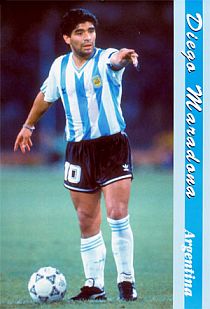


Soccer Cinema

Soccer Cinema is a real dream come true. A travelling cinema, bringing some of the world’s best soccer documentaries to 50 small towns, villages and townships, spread across all 9 South African provinces. The journey begins on 6 April 2010 in Cape Town and will end there on 2 June, followed by a Soccer Cinema Festival held at the Labia Cinema from 5 to 10 June.
Here is a clip from the press release: The FIFA Football World Cup is a unique and very special event. It has the potential to unite South Africa as few other events since democracy was established in 1994. In the months before the championship it is vital that everyone feels part of this. Unity can be built by inspiring South Africans through documentary cinema with insight into famous players, teams as well as incredible highlights and events from the beautiful game’s colourful past. These films are new to South African audiences, and comprise a history and world-view of football that will be available to the public across the whole country. (Full film list see here)
The aim of Soccer Cinema is to better inform audiences about the
sport that will be having its World Cup in South Africa. Furthermore, it will be stirring support and excitement in the build up to the celebration. It will allow people to see, hear and learn more about some of the greatest players and teams in the world – including Brazil’s Pelé and Garrincha, the great Johan Cruijff, Maradona, Ivorian player Didier Drogba, Ghana’s Essien, Cameroon’s Eto and South Africa’s Sibusiso Zuma.
Soccer Cinema is setting up its mobile screen in small towns that will not be able to experience the World Cup live, towns with special histories. Among these towns are Boipatong, where terrible massacres between hostel dwellers took place in 1992, Sharpeville, site of the Sharpeville Massacre in 1960, in Cradock where Nyameka Goniwe is lending Soccer Cinema a generous hand to organize a screening. Another significant destination is Qunu, the home of Nelson Mandela, Schmidtsdrif, where a community of 6000 San people live, Galeshewe, outside Kimberely, and Musina, the border town that has become the first port of call for Zimbabwean refugees.
Soccer Cinema will screen films on soccer heroes including Didier Drogba (Drogba Fever) and Sibusiso Zuma (Zuma the Puma), visiting Worcester and the IsiMangaliso Wetlands south of Kosi Bay, the Limpopo and Orange River, Drakensberg and the plains of the Northern Cape’s Kakamas.
Just like on the pitch, Soccer Cinema consists of 2 teams. Two strikers in the Advance Team coordinate screenings. The Screening Team, that will score, counts four players, including accomplished film and theatre actor Mbulelo Grootboom. And there are coaches and trainers on the sidelines (STEPS Southern Africa office in Cape Town).
We hope you’ll join us for screenings somewhere along the road or follow the journey on the Soccer Cinema website: www.soccercinema.co.za
PS. This blogger has just left Camp Nou in Barcelona where he has seen a beautiful game between Arsenal and Barcelona – with Barca as the winner due to 4 goals of Messi. I hope that the films to be shown in South Africa will create the same enthusiasm for the soccer as I had for 90 intense minutes together with 90.000 other spectators!